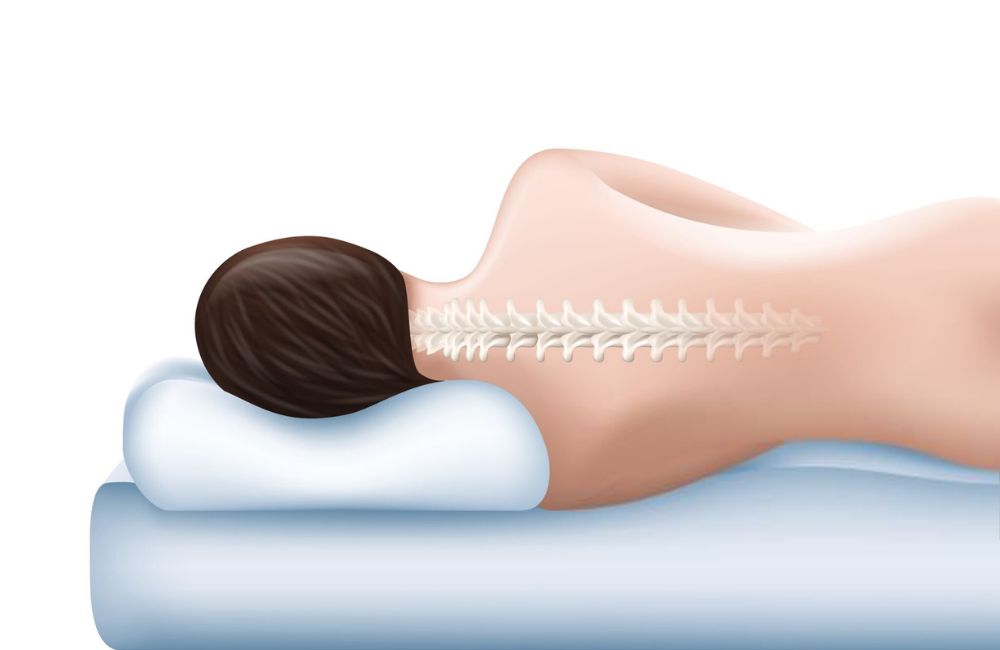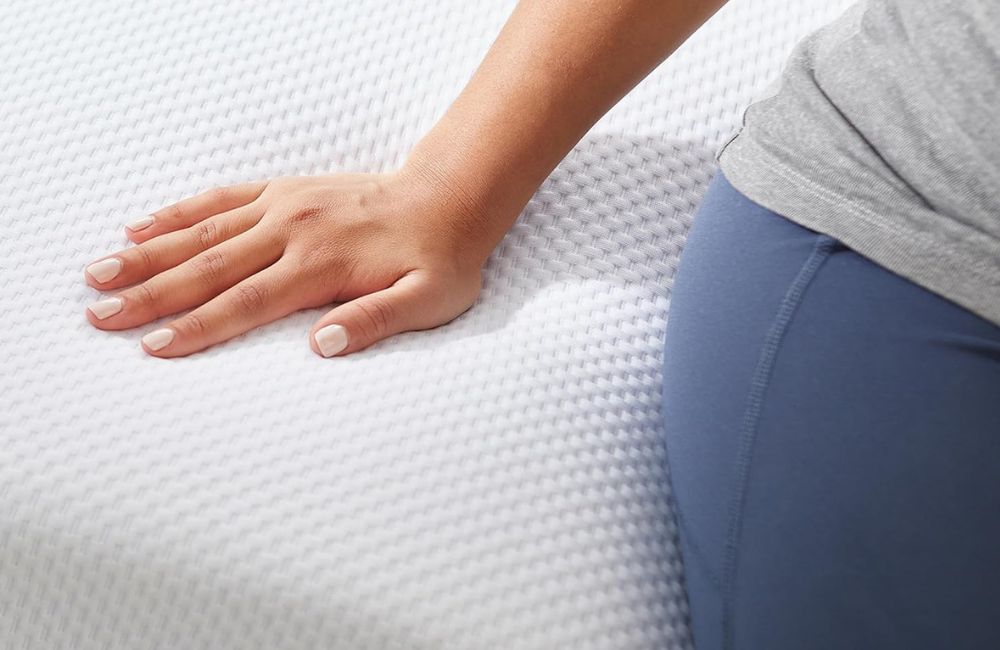Choosing the right mattress is crucial for people suffering from back pain. A mattress that is too soft or too firm can exacerbate the problem and lead to discomfort, stiffness, and poor sleep quality. This article will explore the differences between plush and firm mattresses and how they affect back pain. It will also provide expert recommendations for back pain sufferers and tips on how to test a mattress for back support.
- Understanding Back Pain and Mattress Support
- The Science of Sleep and Spinal Alignment
- Plush Mattresses: Pros and Cons
- Firm Mattresses: Pros and Cons
- Comparing Plush and Firm Mattresses
- Personal Factors to Consider
- Expert Recommendations for Back Pain Sufferers
- How to Test a Mattress for Back Support
- Maintenance Tips for Longevity and Consistent Support
- Frequently Asked Questions
Understanding Back Pain and Mattress Support
Back pain is a common problem that affects millions of people worldwide. It can be caused by a variety of factors, including poor posture, muscle strain, injury, and medical conditions such as arthritis and herniated discs. A good mattress can provide the necessary support and alignment to alleviate back pain and promote restful sleep. The right mattress should be firm enough to keep the spine in a neutral position, but not so firm that it causes discomfort or pressure points.
The Science of Sleep and Spinal Alignment
Sleep is essential for overall health and well-being. During sleep, the body repairs and rejuvenates itself, and the brain consolidates memories and learning. Spinal alignment is crucial for good sleep quality and back health. When the spine is aligned correctly, it reduces pressure on the nerves and muscles, allowing them to relax and recover. A mattress that is too soft or too firm can disrupt spinal alignment and lead to back pain.
The Science of Sleep and Spinal Alignment


Importance of Spinal Alignment
Maintaining proper spinal alignment is crucial for a good night’s sleep and overall health. When the spine is properly aligned, it helps to reduce pressure on the nerves, muscles, and joints, which can help alleviate pain and stiffness. On the other hand, poor spinal alignment can cause discomfort and lead to long-term issues such as chronic back pain.
Role of Mattress in Spinal Health
One of the key factors that affects spinal alignment is the type of mattress a person sleeps on. A mattress that is too soft may cause the spine to sink too deeply, while a mattress that is too firm may not provide enough support. According to Sleep Foundation, a medium-firm mattress is generally the best choice for people with back pain as it provides both comfort and support.
A medium-firm mattress helps to keep the spine in a neutral position, which means that it is not overly curved or flattened. This position helps to reduce pressure on the spine and allows the muscles and joints to relax. Additionally, a mattress with good conforming properties can help distribute body weight evenly, which can further reduce pressure points and improve spinal alignment.
It is also important to note that the type of mattress a person needs may vary depending on their sleeping position. For example, side sleepers may benefit from a softer mattress that can help cushion the hips and shoulders, while back and stomach sleepers may prefer a firmer mattress that can provide more support.
Plush Mattresses: Pros and Cons


Benefits of Plush Mattresses for Back Pain
Plush mattresses are known for their softness and cushioning materials which can be beneficial for people with back pain. The extra padding in a plush mattress can help to relieve pressure points on the body, which can be especially helpful for those who sleep on their sides or have a bony frame. According to Bob Vila, plush mattresses can provide a “cloud-like” feeling that can help to reduce stress on the body and promote better sleep.
Another benefit of plush mattresses is that they can conform to the body’s natural curves, which can help to keep the spine properly aligned. This can be especially important for people with back pain, as a misaligned spine can exacerbate discomfort and lead to further issues. Plush mattresses can also help to absorb motion, which can be helpful for couples who have different sleep schedules or preferences.
Drawbacks of Plush Mattresses
While plush mattresses can be beneficial for people with back pain, they are not without their drawbacks. One potential issue with plush mattresses is that they may not provide enough support for some people, especially those who are overweight or have a larger body frame. This lack of support can lead to sinking or sagging, which can exacerbate back pain and discomfort.
Another potential issue with plush mattresses is that they may not be as durable as firmer options. According to Casper, plush mattresses may be more prone to developing body impressions or losing their shape over time. This can be a concern for people who want a mattress that will last for several years without needing to be replaced.
Overall, plush mattresses can be a good choice for people with back pain who are looking for a softer, more cushioned sleep surface. However, it is important to consider the potential drawbacks of these mattresses, such as a lack of support and durability issues, before making a final decision.
Recommended plush mattresses
Firm Mattresses: Pros and Cons
Benefits of Firm Mattresses for Back Pain
Firm mattresses provide a solid sleep surface that helps keep the spine aligned and reduces pressure points. This makes them a popular choice for back sleepers and those who experience back pain. According to Forbes, “back sleepers and those who experience back pain benefit most from a firm mattress.”
Firm mattresses offer excellent support and prevent the body from sinking too deeply into the bed. This helps maintain proper spinal alignment and reduces the risk of developing back pain. Additionally, firm mattresses can help improve posture by keeping the body in a neutral position while sleeping.
Drawbacks of Firm Mattresses
While firm mattresses have many benefits, they are not the best choice for everyone. One of the main drawbacks of firm mattresses is that they can be too hard for some people, leading to discomfort and pain. Side sleepers, in particular, may find that a firm mattress puts too much pressure on their hips and shoulders.
Firm mattresses can also be less comfortable than plush mattresses, as they lack the soft cushioning that many people enjoy. This can make it more difficult to fall asleep and stay asleep throughout the night.
In summary, firm mattresses are an excellent choice for back sleepers and those who experience back pain. They offer excellent support and help maintain proper spinal alignment. However, they may not be the best choice for side sleepers or those who prefer a softer sleep surface.
Recommended firm mattresses
Comparing Plush and Firm Mattresses


When it comes to choosing a mattress, one of the most important factors to consider is the level of firmness. Two of the most common options are plush and firm mattresses. While both types of mattresses have their own unique benefits, they can impact sleep quality and back pain differently. In this section, we will compare plush and firm mattresses to help you decide which one is right for you.
Differences in Material and Construction
Plush mattresses are typically made with softer materials such as memory foam or pillow-top layers. These materials provide a more cushioned feel that can help relieve pressure points. On the other hand, firm mattresses are made with denser materials such as latex or innerspring coils. These materials provide more support and a firmer sleep surface.
When it comes to construction, plush mattresses tend to have more layers and a thicker profile. This can make them more comfortable for side sleepers or those who prefer a softer feel. Firm mattresses, on the other hand, typically have fewer layers and a thinner profile. This can make them more suitable for back and stomach sleepers who need more support.
Impact on Sleep Quality and Back Pain
The level of firmness in a mattress can impact sleep quality and back pain differently. For example, a plush mattress can provide more pressure relief and contouring, which can be beneficial for those with joint pain or pressure points. However, plush mattresses may not provide enough support for those with back pain, as they can cause the spine to sink out of alignment.
On the other hand, a firm mattress can provide more support and help keep the spine in a neutral position. This can be beneficial for those with back pain or those who need more support. However, firm mattresses may not be as comfortable for side sleepers or those who prefer a softer feel.
In conclusion, when choosing between a plush and firm mattress, it is important to consider your sleeping position, body type, and personal preferences. Both types of mattresses have their own unique benefits, and it ultimately comes down to what feels most comfortable and supportive for you.
Personal Factors to Consider
When it comes to choosing between a plush and firm mattress for back pain, there are several personal factors that one should consider. These factors include body weight, preferred sleeping position, personal comfort, and sleep habits.
Body Weight and Preferred Sleeping Position
Body weight and preferred sleeping position are two important factors to consider when choosing between a plush and firm mattress. Generally, people who weigh less and sleep on their backs or sides tend to prefer a plush mattress, while those who weigh more and sleep on their stomachs tend to prefer a firmer mattress.
A plush mattress can provide more cushioning and contouring for lighter-weight sleepers, allowing their body to sink into the bed slightly. This can help relieve pressure points and reduce pain. On the other hand, a firmer mattress can provide more support and prevent heavier-weight sleepers from sinking too far into the bed, which can help maintain proper spinal alignment.
Personal Comfort and Sleep Habits
Personal comfort and sleep habits are also important factors to consider when choosing between a plush and firm mattress. Some people simply prefer the feel of a plush mattress, while others prefer the feel of a firmer mattress.
Additionally, sleep habits can also play a role in mattress preference. For example, people who move around a lot during the night may prefer a firmer mattress, as it can provide more stability and prevent them from sinking too far into the bed. On the other hand, people who tend to stay in one position throughout the night may prefer a plush mattress, as it can provide more cushioning and comfort.
Ultimately, the best way to determine whether a plush or firm mattress is right for you is to try out different options and see which one feels most comfortable and supportive.
Expert Recommendations for Back Pain Sufferers


When it comes to choosing between a plush or firm mattress for back pain, it can be overwhelming to decide which one is right for you. However, experts agree that there is no one-size-fits-all answer and that the best mattress for back pain is one that is comfortable and supportive.
According to Consumer Reports, the best mattress for back pain is one that is medium-firm. A medium-firm mattress provides the right balance of support and comfort for most people with back pain.
However, if you prefer a plush mattress, it is important to choose one that still provides adequate support. Look for a plush mattress with a supportive core such as a hybrid mattress that combines the softness of foam with the support of coils.
On the other hand, if you prefer a firm mattress, make sure it is not too hard. A mattress that is too firm can cause pressure points and exacerbate back pain. Look for a firm mattress that has some cushioning on top such as a pillow-top mattress or a memory foam mattress with a lower density.
It is also important to consider your sleeping position when choosing a mattress. For back sleepers, a medium-firm mattress is typically the best option. For side sleepers, a plush mattress can help alleviate pressure points on the hips and shoulders. For stomach sleepers, a firm mattress can help keep the spine in a neutral position.
Ultimately, the best mattress for back pain is one that is comfortable and supportive for your individual needs. It is recommended to try out different mattresses in person or take advantage of a sleep trial period to ensure you are making the right choice for your back pain.
How to Test a Mattress for Back Support
When it comes to choosing a mattress for back pain, it is essential to test it for back support. Here are some simple steps to follow:
- Lie down on the mattress in your usual sleeping position and pay attention to how your spine feels. Your spine should be aligned in a neutral position, which means that it should be straight and not curved unnaturally in any direction. If you feel any pressure points or discomfort, the mattress may not be providing the necessary support.
- Check the firmness of the mattress. While a firm mattress is generally better for back support, it is not suitable for everyone. A plush mattress can also provide adequate support, especially for side sleepers. It is essential to find the right balance between comfort and support.
- Consider the materials used in the mattress. Memory foam mattresses are known for their ability to contour to the body’s shape and provide pressure relief, which can be beneficial for those with back pain. Innerspring mattresses, on the other hand, are known for their durability and firmness.
- Test the mattress for motion transfer. If you share your bed with a partner, you want to ensure that their movements do not disturb your sleep. A mattress with good motion isolation can absorb the movements and prevent them from transferring to your side of the bed.
By following these simple steps, you can test a mattress for back support and make an informed decision when choosing a mattress for back pain. Remember that everyone’s needs are different, and what works for one person may not work for another. It is essential to find a mattress that meets your specific needs and preferences.
Maintenance Tips for Longevity and Consistent Support
Regardless of whether you choose a plush or firm mattress, proper maintenance is crucial to ensure longevity and consistent support. Here are a few tips to keep your mattress in top condition:
- Rotate your mattress regularly: It is recommended to rotate your mattress every three to six months to prevent uneven wear and tear. This will also help to maintain consistent support throughout the mattress.
- Use a mattress protector: A mattress protector can help to prevent spills, stains, and dust mites from penetrating the mattress. It is recommended to wash the protector every few months to maintain hygiene.
- Keep the mattress clean: Regularly vacuuming the mattress can help to remove dust and debris that can accumulate over time. If there are any spills, it is important to clean them up immediately to prevent stains from setting in.
- Avoid jumping on the mattress: Jumping on the mattress can cause damage to the springs and foam, leading to premature wear and tear. It is best to avoid this activity altogether.
- Replace the mattress when necessary: Even with proper maintenance, a mattress will eventually wear out and lose its support. It is recommended to replace your mattress every 7-10 years to ensure consistent support and comfort.
By following these simple maintenance tips, you can help to ensure that your mattress provides consistent support and comfort for years to come.
Frequently Asked Questions
What are the benefits of a plush mattress for individuals with back pain?
A plush mattress can help relieve pressure points by conforming to the body’s shape. This can be especially beneficial for individuals with back pain, as it can reduce the pressure on the spine and provide a more comfortable sleep surface. Additionally, plush mattresses can help distribute body weight more evenly, which can also help alleviate pain.
How does a firm mattress affect back pain relief compared to a plush one?
While firm mattresses are designed to provide extra support and spinal alignment, they may not be the best choice for individuals with back pain. A plush mattress can help reduce pressure points and provide a more comfortable sleep surface, which can be beneficial for individuals with back pain. However, it’s important to note that the best mattress for back pain relief will depend on individual preferences and needs.
Can a medium firmness mattress be the best compromise for back pain sufferers?
A medium firmness mattress can be a good compromise for back pain sufferers, as it can provide both support and comfort. However, it’s important to choose a mattress that is specifically designed to address back pain and provide the necessary support and pressure relief.
What do orthopedic specialists recommend for mattresses in cases of chronic back pain?
Orthopedic specialists often recommend medium firmness mattresses that provide both support and comfort. Additionally, they may recommend mattresses with features such as memory foam or latex, which can help reduce pressure points and provide a more comfortable sleep surface.
How do personal sleep preferences impact the choice between plush and firm mattresses for back pain?
Personal sleep preferences can play a role in choosing between plush and firm mattresses for back pain. For example, individuals who prefer a softer sleep surface may benefit from a plush mattress, while those who prefer a firmer sleep surface may benefit from a firm mattress. However, it’s important to choose a mattress that provides the necessary support and pressure relief for back pain relief.
What features should I look for in a mattress to address lower back pain?
When choosing a mattress to address lower back pain, it’s important to look for features such as support, pressure relief, and spinal alignment. Additionally, features such as memory foam or latex can help reduce pressure points and provide a more comfortable sleep surface. It’s also important to choose a mattress that is specifically designed to address back pain and provide the necessary support and pressure relief.
Disclaimer: Last update on 2024-07-27 / Affiliate links / Images from Amazon Product Advertising API.
This content is provided solely for educational reasons and should not be seen as medical guidance. It’s important to consult with a healthcare expert prior to making any changes to your health regimen, including dietary adjustments or the use of supplements.
Pages on this website may contain affiliate links. As an Amazon Associate, we receive a commission from qualifying purchases. This commission is at no extra cost to you.



